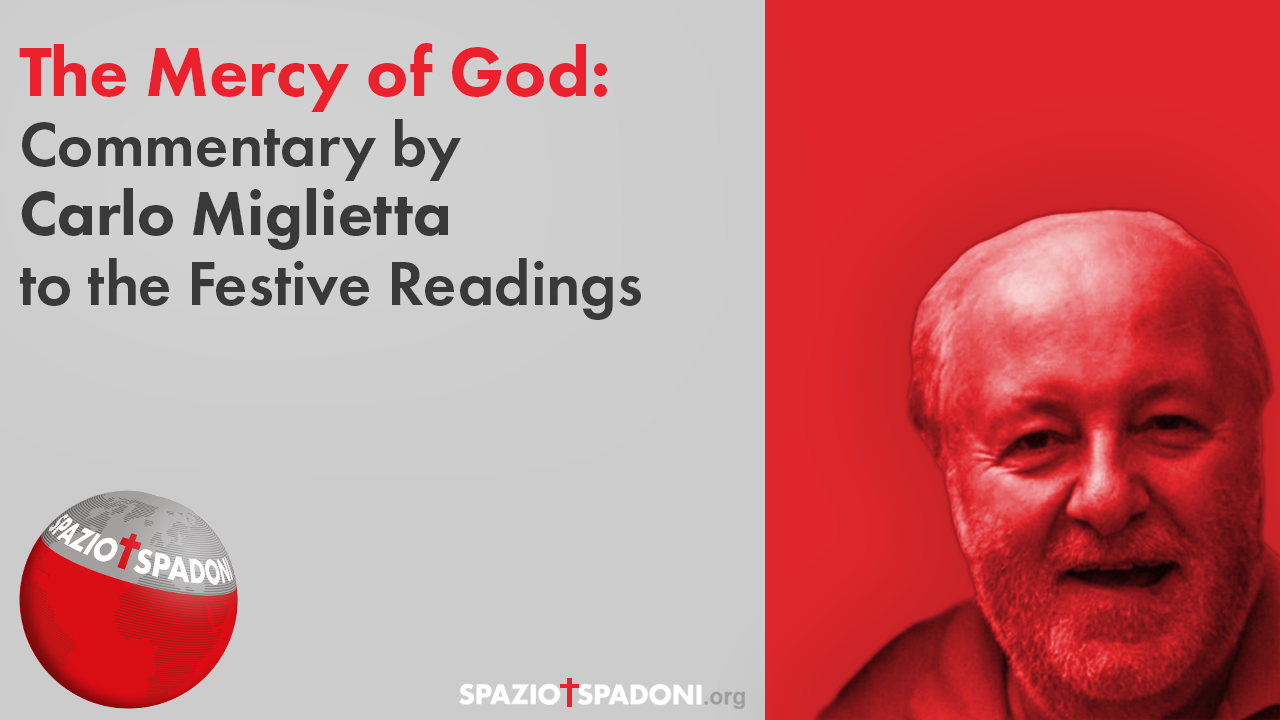
The Messianic Passover
Readings: 2 Kings 4:42-44; Eph 4:1-6; Jn 6:1-15
The liturgy today interrupts the “lectio continua” of Mark’s Gospel to offer us, for five Sundays, meditation on chapter 6 of John’s Gospel, with the great discourse on the “Bread of Life.”
Chapter 6 begins with the account of the multiplication of the loaves. The narrative has as its backdrop the book of Exodus, to which it continually alludes: the crossing of the sea, the multitude on the way, the mountain, the bread, implicit quotations from the text (Ex 3; 16; 33…) and the rabbinic tradition about it. The annotation in v. 4, “The Passover was near,” indicates to us that we must read this chapter in a Passover context: if in chapter 2, during the First Passover, the focus was primarily on Jesus as the new sacrificial victim, here more emphasis is placed on a second sign of the Jewish feast: the “mazzoth,” the unleavened loaves. In Deut. 16:3 they are presented as the loaves of affliction, the bread of the oppressed who cannot afford the time of leavening; but in Ex. 12:39 they are the bread of liberation, which took place so quickly that there was no time for the slaves to bake themselves a normal loaf: both of these meanings will be taken up by Jesus.
“Jesus went up on the mountain and there he sat down with his disciples” (v. 3); the mountain is the place, in the Old Testament, where God’s Presence dwells: on Sinai he reveals himself (Ex 19:18), on Mount Zion he dwells in the temple (Sl 87; Is 2:2-5; 1 Kings 8:11…). Jesus proclaims that he is the Place where the Shekinah, the Glory of God, is now definitely manifested. Before him stand the hungry crowds: not just for bread, but for meaning in life, for healing, for peace, for happiness (v. 5). Jesus tests (a typically exodic theme: Ex 15; 16; 20; 32…) his church, inviting it to feed these people. And his church immediately gets into human calculations, thinking how it can solve the problem according to worldly logic (vv. 5-7). But Jesus completely displaces her, imbibing in his omnipotence the messianic Passover: he orders the crowd to be made to lie down (v. 10: “anapesèin” is not being seated, but lying down, the attitude, during the meal, of free men), arranges them on a “place with much grass” (v.10 : an oddity … in the wilderness, but clear allusion to the Messianic Kingdom: Sl 72:16; 23:1-2..), for a total of 5,000 men (v.10: the eschatological Passover is no longer celebrated in the family, according to Ex 12:3, but in the community), setting out the lavish and superabundant banquet of the Day of JHWH (vv. 11-13: cf. Pr 9:1-5; Is 25:6-12; 55:1-3; Rev 19:8.17).
The story reminds us of the miracle of Elisha, presented to us in the First Reading: there 100 loaves had been enough for 100 men, now 5 loaves are enough for 5,000. Jesus is far greater than Elisha: he is the “prophet who is to come into the world” (v.14), the eschatological revelation of God promised to Moses (Deut. 18:15-18). But the onlookers, expecting a strong and powerful Messiah, want to make him king: the episode of idolatry of the Israelites in the wilderness is repeated (Ex 32), when they try to worship JHWH according to the idea and image they have made of him (the golden calf, a symbol of strength and wealth). The Jews are willing to accept the Jesus they expect, the one that suits them: but Jesus will be true King only on the cross. And Jesus’ ascent “up the mountain, all alone” (v. 15) is prophecy of the ascent of Golgotha alone, forsaken by all (16:32).
May the Lord who causes us to experience his glory, his ability to feed the depths of our hearts, help us to accept also the unsettling logic that will make him broken bread to be eaten, and who also asks us to make ourselves bread for our brothers and sisters, becoming their servants (Jn. 13), as the Second Reading says, “with all humility, meekness and patience, bearing with one another in love” (Eph. 4:1-6).
